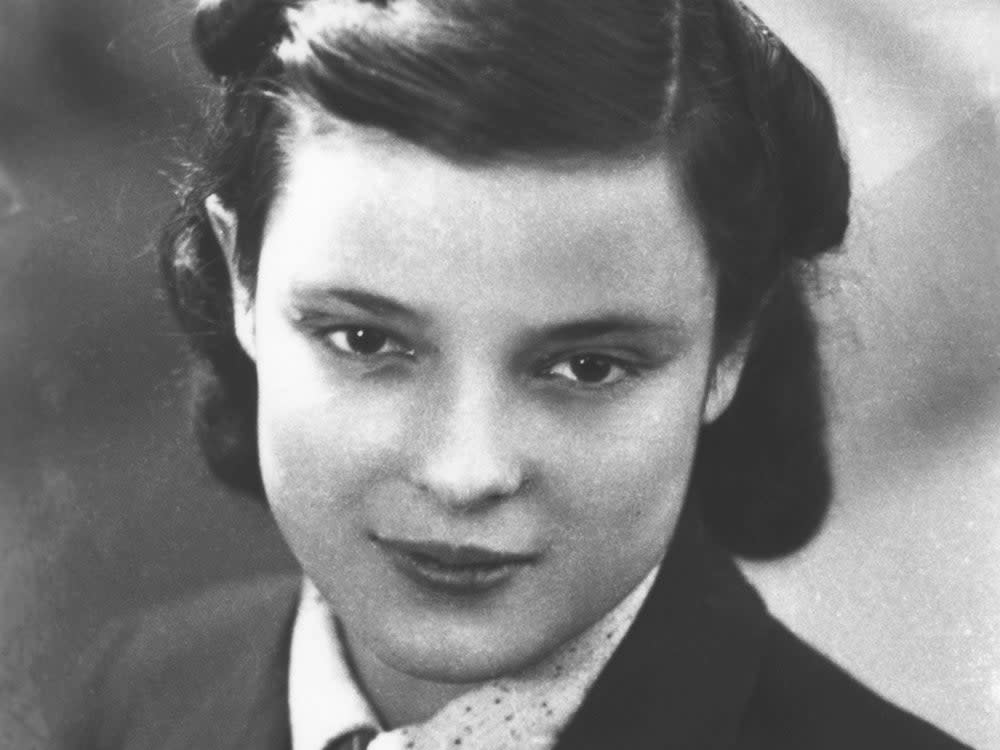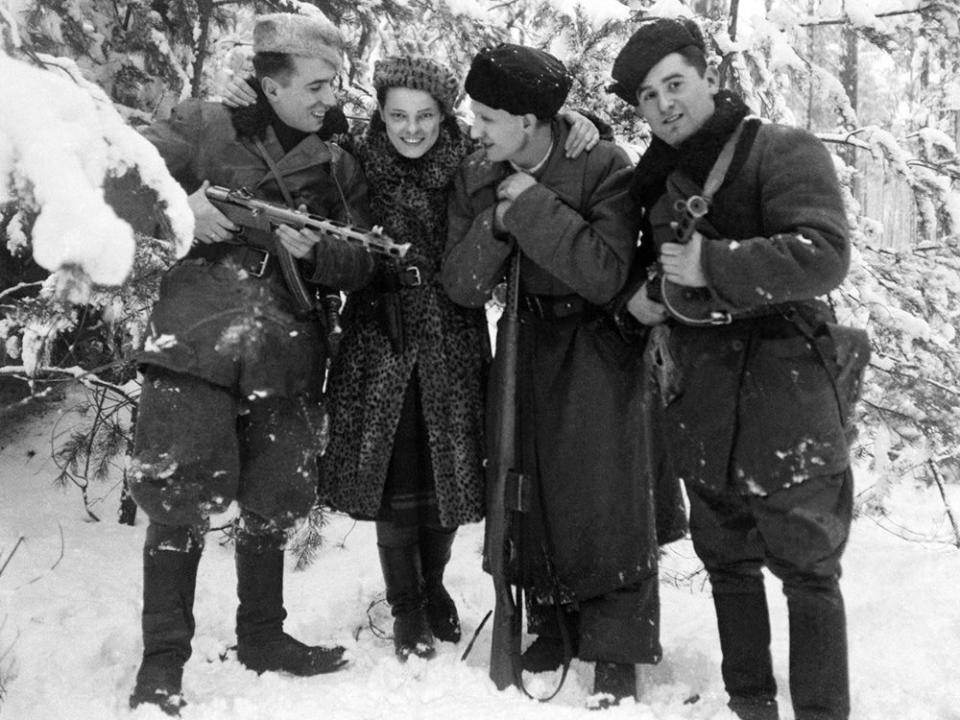Faye Schulman: Photographer and Jewish resistance fighter

- Oops!Something went wrong.Please try again later.
Faye Schulman, a Jewish photographer who spent two years as a partisan resistance fighter on the eastern front during the Second World War and also captured atrocities committed by the Nazis, has died aged 101.
Nearly eight decades since the Holocaust began, those who witnessed and lived through such violence are starting to dwindle in number. It is the images, such as those taken by Schulman, that will be viewed and studied when the horrors of the war have faded from collective memory. Schulman, armed with a Photo-Porst Nurnberg, which she kept until her death, is one of many who have played their role in documenting tragedy.
It was her talent as a photographer – which she developed with the help of her brother, Moishe – that would save her life when the Nazis occupied Poland. In May 1942, the ghetto that had been established in Schulman’s hometown of Lenin was liquidated, and nearly 2,000 people, including her parents and six siblings, were murdered.
The Nazis, deeming her photography skills valuable, spared her the same fate as the rest of her family. Instead she was put to work photographing the massacre, which included the bodies of her relatives. Determined that the events of Lenin would be exposed, Schulman secretly made extra copies of the photographs.
Schulman was adrift after witnessing such horrors, but before long one idea grew to be foremost in her mind – avenging the murder of her family. No longer fearful of putting anyone in danger, she escaped into the nearby forest and came across the Molotova Brigade, a group consisting mostly of escaped Soviet POWs. At 22 years old, Schulman became one of the tens of thousands of Jewish people who joined the resistance.
“We faced hunger and cold; we faced the constant threat of death and torture … Against all odds we struggled,” Faye wrote of her time with the brigade in her autobiography, A Partisan’s Memoir.
Donning a leopard-skin coat to survive the biting Polish winters, Schulman spent two years helping the brigade with medical issues – in a small resistance group up against the brutality of the invading Nazis, there were many to deal with. Whether this was treating gunshot wounds or performing surgeries in the open with vodka as an anaesthetic, she played a crucial role in the camp.
Schulman also risked her life by taking part in many raids. “When it was time to be hugging a boyfriend, I was hugging a rifle,” Schulman told a 1999 PBS documentary. “Now, I said to myself, my life is changed.”

After recovering her camera equipment during a raid, she spent her spare time capturing images of the people she encountered in the resistance, young and old, doing their part to sabotage the enemy. More than 75 years later, her images offer a unique perspective into a part of history that has often been overlooked.
Throughout the war, Schulman proved to be a courageous and kind figure. She took care of an eight-year-old Jewish girl after the wife of a local priest, who had been taking care of her, fled. For over a year she made sure that the girl, whose name was Raika, was looked after. Raika was eventually taken to Moscow, and Schulman never saw or heard from her again.
As for many in the war, loss became an encompassing shadow for Schulman that never seemed to leave. During what would turn out to be her final raid in Lenin, Schulman visited her family home, now almost destroyed, which had been taken over by local collaborators. Rather than let her beloved house be of any use to the Nazis, she chose to burn it to the ground. After dousing it with petrol, she lit the match herself and watched it go up in flames. “I feel heartbroken, devastated – something precious has been lost yet again … this town and this house, so close to my heart, are no more,” she later recalled.
After the territory was liberated in 1944, she married Morris Schulman, a fellow partisan, and had two children with him. She kept hold of her camera as a permanent reminder of what it represented. “I would never like to part [with it] as long as I live,” she said, remarking that the camera had “seen everything”.
Schulman is survived by two children, a brother, six grandchildren, and three great-grandchildren.
Faye Schulman, partisan photographer, born 28 November 1919, died 24 April 2021
Read More
Yitzhak Arad: Holocaust survivor and Yad Vashem chair
Cecile Rol-Tanguy: Undercover agent with the French resistance

